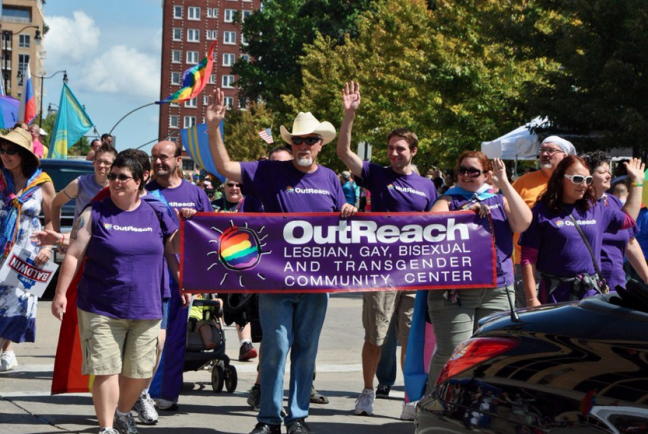Earlier this week in my discussion section, speakers from OutReach, an LGBT group that works around Madison, came to talk to my class and answer any of the questions we had about the LGBT community.
I was expecting my classmates to ask questions about personal stories, the transgender experience or encounters with homophobia and prejudice. We were all familiar with LGBT issues, but the majority of us hadn’t personally experienced any of them. I thought we would have an honest and eye-opening discussion.
The speakers were there to educate us, and we had a lot to learn.
Instead, my classmates asked questions about how to help the LGBT community. For example, one student asked how as a straight, cis-gendered person, that student could speak out for gay rights and create a platform for LGBT people to discuss their issues.
And the speaker, in a careful tone, told us to be aware of “salvationism.”
She didn’t want to be saved or helped by us. She wanted us to try to understand her. She wanted us to be open and accepting to other forms of sexuality, even if they seemed foreign to us.
But, she didn’t want us to view her and the LGBT community as a group to help or to speak out for.
As well-meaning, liberal-minded college students, we want to burst out into the community and crusade for all the repressed and underrepresented groups out there. We view ourselves as forward thinking and capable, and we want to help.
Unfortunately, this compulsion to help brings with it an insulting undertone: that these repressed groups need our help.
By asking how to create a platform for the LGBT community to speak out, the student was implying that the community was incapable of creating the platform for itself. In trying to help, the student was further sidelining an already marginalized group and discounting the years of protests, the multitude of internet boards and the host of forums for LGBT expression.
Madison receives nearly perfect score on LGBT-inclusivity assessment
It seemed strange and counterintuitive, but offering to help wasn’t going to help.
We needed to step back, check our egos and examine our own thought processes. Before we leap headfirst into the heart of a civil rights issue, we must understand things. We should ask questions and try to avoid assumptions. We need to learn to empathize with a group, not pity them.
We should support and accept these groups, not assume that we need to save them.
It seems incredibly egotistical to assume that we need to help, that progress won’t occur without our input. We believe that we are essential to the forward momentum of societal beliefs. We want our words and actions and opinions to propel the thoughts of the general public.
At heart, I know that most of us probably mean well.
Our forward-thinking attitudes toward sexuality and numerous other social issues make me hopeful for a more tolerant society in the future. Many students on campus support gay rights and are accepting toward a variety of sexual expression. They genuinely wish for a community that respects the rights and opinions of its constituents.
But, the path toward a more tolerant future is not to overstep our place and speak on the behalf of others.
Instead, we should ask questions and keep an open mind. We should be aware of our assumptions about the people around us and work to stop making them. Finally, we should recognize our own ignorance and try to understand others, not fix them.
I feel guilty about the way that my classmates and I approached the guest speakers from OutReach in my discussion section. We approached them thinking we inherently understood their story and assumed that they wanted our help instead our understanding.
Social change will come from being truly willing to learn about those around us, not from assuming we need to help.
Teresa Turco ([email protected]) is a sophomore majoring in psychology and economics.




















